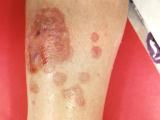Jul 2, 2012
Study: Seasonal prescribing patterns influence antibiotic resistance
Seasonal increases in antibiotic use, such as in the winter when upper-respiratory infections spike, can drive short-term changes in antibiotic resistance, according to a US study in Clinical Infectious Diseases. A team led by Princeton researchers looked at 1999 through 2007 records from a large retail prescription database on five antibiotic classes that make up 70% of prescriptions each year. They compared the trends with those in an electronic susceptibility test result database that includes more than 300 US labs. They found strong correlation between some combinations of antibiotic prescriptions and resistance levels in Escherichia coli and Staphylococcus aureus, with the correlation strongest between resistance and the drugs that are most heavily prescribed. For example, they found that resistant E coli prevalence lagged aminopenicillins and fluoroquinolones by 1 month. The authors
of the study said in a press release today from the Infectious Diseases Society of America (IDSA) that the findings suggest that antibiotic prescribing restrictions set by hospitals could be undermined without coordinated community efforts to curb unnecessary use. They said that decreasing inappropriate antibiotic use through flu vaccination and better education of physicians and patients could have an impact.
Jul 1 Clin Infect Dis abstract
Jul 2 IDSA press release
WHO warns of rising drug-resistant TB in Europe
Cases of multidrug-resistant (MDR-TB) and extensively drug-resistant tuberculosis (XDR-TB) are rising in Europe as the treatment success rate for TB is slipping, the World Health Organization (WHO) said today as managers of national TB programs opened a meeting in London. The WHO's Regional Office for Europe estimated that 81,000 people fall ill with MDR-TB in the region each year, but because of limited access to care, only 29,000 cases were diagnosed in 2010. Noting that treatment for resistant TB is lengthy, complicated, and costly, the WHO said treatment success rates for new and previously treated TB cases fell from 72% and 50%, respectively, in 2005 to 69% and 48% in 2010. The statement quoted a Romanian man who described how, while being treated for XDR-TB, he wasn't allowed to work, but he had to return work to keep his family from starving. He died in May. Following adoption of a regional action plan last year, many European
Region countries have increased access to treatment for resistant TB, but many patients still go undiagnosed or untreated, the WHO said.
Jun 29 WHO Europe statement
WHO, CDC experts haven't solved Vietnam's mystery syndrome
Officials from the World Health Organization (WHO) and the US Centers for Disease Control and Prevention (CDC) have not been able to figure out the mysterious, deadly skin ailment that has plagued Vietnam's central Quang Ngai province, Than Nien News reported. Two WHO and CDC experts arrived in Vietnam in June to work with local officials to identify a disease that has affected 216 people and killed 12 of them, Than Nien reported, citing a press release from the WHO and Vietnam's Ministry of Health. The disease, which the WHO calls inflammatory palmoplantar hyperkeratosis syndrome, is characterized by "chronic intoxication" that can lead to inflammation and lesions on the hands, feet, and liver, the story said. "We do no[t] know what causes the syndrome, or its source of transmission; identifying the cause may take longer than anticipated or prove elusive," said Takeshi Kasai, MD, the WHO's Vietnam representative. The syndrome
may not be infectious, the story said.
Jun 29 Than Nien story
Groups focus Hispaniola cholera efforts on clean water, sanitation
Global health groups and several nongovernmental organizations agreed to pool efforts to promote water and sanitation improvements as key to long-term cholera success in Haiti and the Dominican Republic, according to a press release from the Pan American Health Organization (PAHO) and the WHO. Groups involved in the effort were on hand to launch the new Regional Coalition on Water and Sanitation for the Elimination of Cholera in the Island of Hispaniola at a Jun 29 meeting of the Organization of American States in Washington, DC. The goal is to help the two countries harmonize and streamline international support for investments in water and sanitation infrastructure, with the Inter-American Development Bank (IDB), said the effort is a high priority for the IDB, which has pledged to give Haiti $200 million per year over the next 10 years. The launch of the regional group follows a Jan 11 call from the presidents of
Haiti and the Dominican Republic, along with a host of global health partners, to eliminate cholera on Hispaniola through investment in water and sanitation.
Jun 29 PAHO/WHO press release
In other cholera developments, infectious disease message boards and news blogs with expertise in translating foreign-language news reports are reporting a cholera outbreak in Manzanillo, Cuba, located in the eastern part of the country. The reports are citing independent Cuban press and other sources. According to the reports, the outbreak has killed two people, with at least 50 additional illnesses that are overwhelming the local hospital. None of the stories had any information about a possible source of the outbreak. One report said the government has placed the town under quarantine.
Jul 1 FluTrackers thread
Jul 1 Crawford Kilian H5N1 blog
post






















